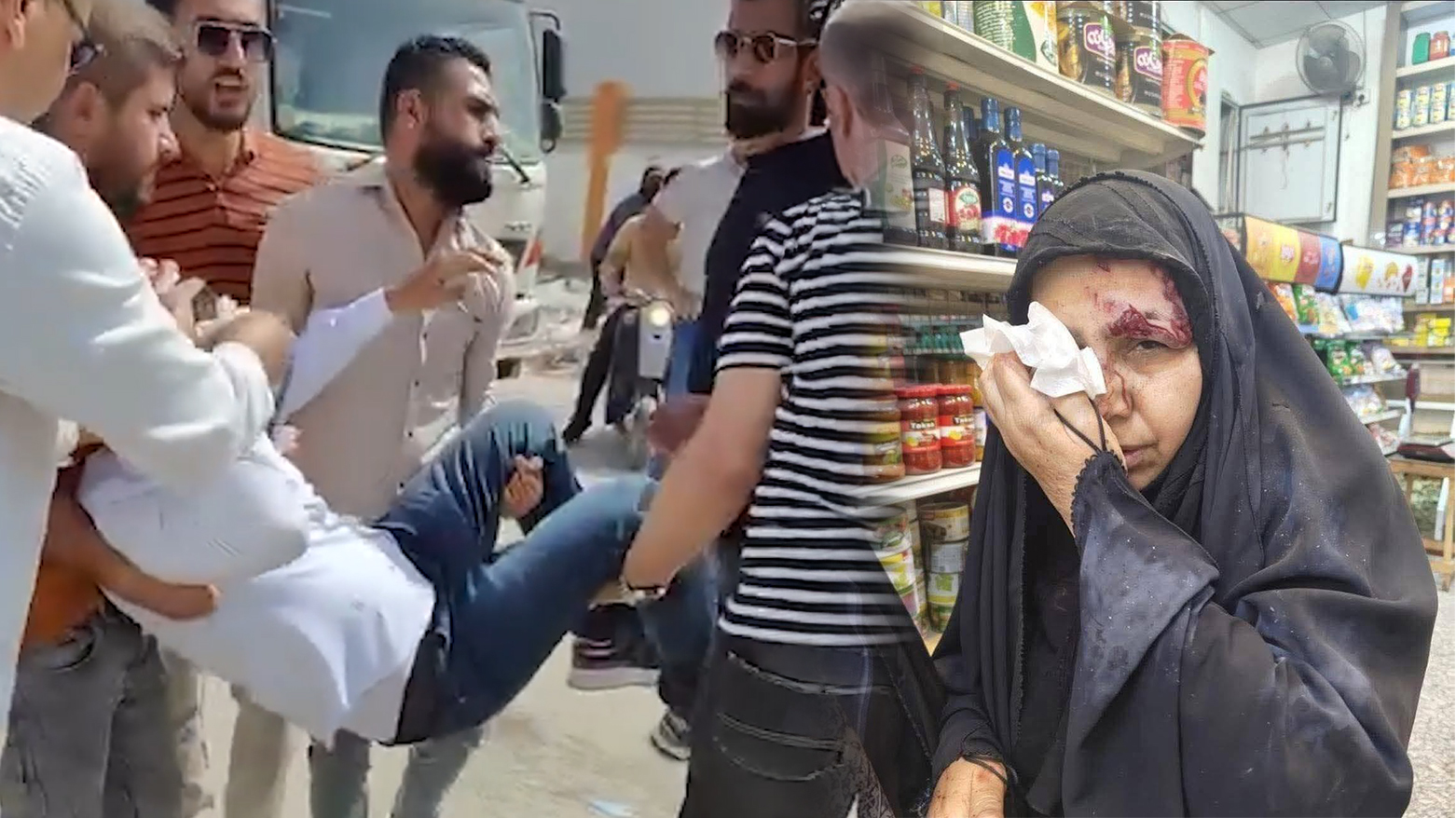Teachers Protest in Multiple Iraqi Provinces, Demand Pay Raise and Improved Living Conditions
Teachers have warned that failure to address their demands could result in prolonged strikes, further exacerbating the education crisis in the country.

ERBIL (Kurdistan24) — Teachers affiliated with Iraq's Ministry of Education have been staging protests across several provinces, calling for increased salaries and better living conditions. The protests, which have continued for several days, have gained momentum despite attempts by security forces to disperse demonstrators. On Tuesday, protests erupted in Nasiriyah city as teachers voiced their demands for improved wages and housing benefits, leading to clashes with federal police.
According to local media reports, the protests turned violent when security forces used tear gas to disperse crowds, injuring several demonstrators in the process. In addition to the clashes in Nasiriyah, protests were reported in the provinces of Diyala, Basra, Dhi Qar, and Babel. Teachers across these provinces are demanding substantial salary increases and land allocation to support their families. They argue that their current wages do not meet the rising cost of living, and they require better access to housing to ensure their well-being.
Teachers Protest in Multiple Iraqi Provinces, Demand Pay Raise and Improved Living Conditions!
— Kurdistan 24 English (@K24English) April 8, 2025
Teachers have warned that failure to address their demands could result in prolonged strikes, further exacerbating the education crisis in the country!
Read More:… pic.twitter.com/MslW9ulJV4
In Diyala, teachers gathered outside the Ministry of Education’s provincial office, presenting their requests for better financial conditions and access to land for residential purposes. These demands are amplified by the overall deterioration of security conditions, which has exacerbated the teachers' plight. Similarly, in Basra and Dhi Qar, teachers protested outside local government buildings, insisting on better financial compensation and security measures.
Safa Maliki, a spokesperson for the protests, stated that "thousands of teachers have participated in these protests, calling for a salary increase and the provision of land for residential purposes." He added, "The ongoing protests in various Iraqi provinces are a continuation of the teachers' struggle to secure better working and living conditions."
The protests reflect the growing frustration among public sector workers, particularly teachers, who have long complained of insufficient wages and inadequate housing. Teachers argue that the government has failed to address their concerns despite repeated promises for reform.
In response to the demonstrations, the Iraqi Cabinet is expected to hold a meeting today to discuss the issue, with calls for immediate action to meet the teachers' demands. The Cabinet has been urged to ensure that teachers are granted full rights and that measures are taken to improve their pay and living conditions in line with the current economic realities.
Teachers have warned that failure to address their demands could result in prolonged strikes, further exacerbating the education crisis in the country. "If the government fails to meet our demands, the protests will continue and may intensify," said a protest leader. "This is not just about pay but about ensuring that teachers are treated with the dignity they deserve."
The ongoing protests highlight the economic struggles faced by many Iraqi citizens, especially public sector workers who are experiencing stagnation in wages amid a broader economic slowdown. With tensions mounting, it remains to be seen how the government will respond to the teachers' demands and whether these protests will lead to tangible changes in Iraq's education system.
On Tuesday, protests erupted in Nasiriyah city as teachers voiced their demands for improved wages and housing benefits, leading to clashes with federal police!
— Kurdistan 24 English (@K24English) April 8, 2025
According to local media reports, the protests turned violent when security forces used tear gas to disperse crowds,… pic.twitter.com/e0N6VZybUX